Said and Done
October 2019
MIT School of Humanities, Arts, and Social Sciences

QUOTABLE
"The significance of Abhijit’s and Esther’s scholarship is not only that it has transformed the ways in which economists and policymakers approach poverty alleviation, but that, at the core, their research is guided by deeply humanistic values. In their vision, the materially-poor are at the center, as are remedies for poverty that actually work, that open doors for millions to education, healthcare, economic well-being, and safe communities — to the full promise of human life.”
— Melissa Nobles, Kenan Sahin Dean, MIT School of Humanities, Arts, and Social Sciences
THE NOBEL PRIZE FOR ECONOMICS
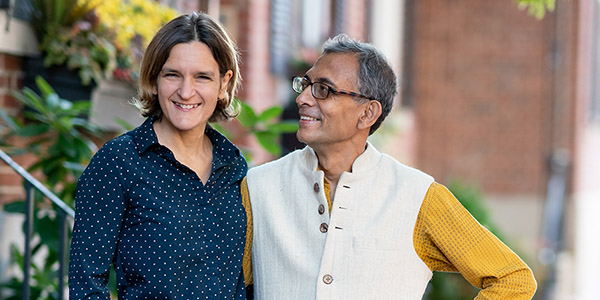
The new laureates; photo by Bryce Vickmark
MIT ECONOMICS | ABDUL LATIF JAMEEL POVERTY ACTION LAB
Abijit Banerjee and Esther Duflo win the Nobel Prize for economics
Duflo and Banerjee, whose work has transformed poverty alleviation research and policy, have won the 2019 Sveriges Riksbank Prize in Economic Sciences in Memory of Alfred Nobel, sharing the prize with a longtime affiliate, economist Michael Kremer of Harvard. In their work, they have applied the precision of laboratory-style randonmized control trials while examining the attributes of poverty and developing effective, evidence-based poverty alleviation programs.
Story by Peter Dizikes at MIT News | Press Conference at MIT | Additional Media Coverage
Forthcoming book
Duflo's and Banerjee's new book, Good Economics for Hard Times, will be published this November, following their 2011 book, Poor Economics: A Radical Rethinking of the Way to Fight Global Poverty.
COMPUTING AND AI: HUMANISTIC PERSPECTIVES FROM MIT
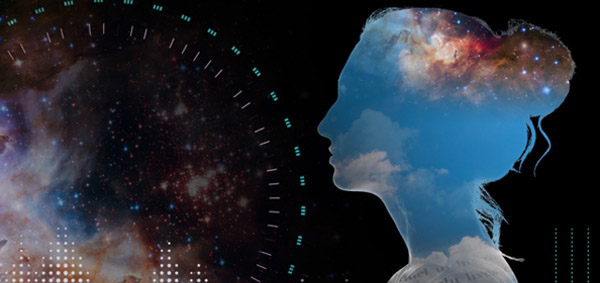
Image by Christine Daniloff; MIT News
Staying Human in the Age of AI
In 15 short commentaries, MIT professors envision how the humanistic fields can collaborate with the scientific and technical fields to help shape advanced computing and AI for the public good — and how the humanistic fields can benefit from advanced technologies. Browse the series!
ELECTION INTERFERENCE
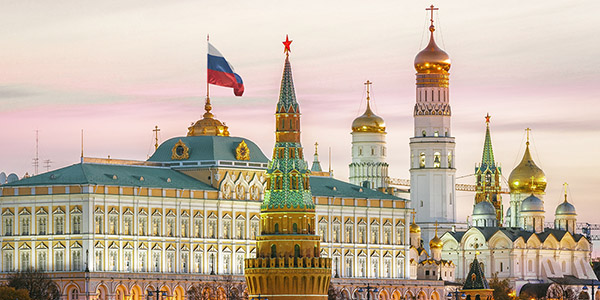
The Moscow Kremlin; iStock
3 Questions with MIT historian and Russia expert Elizabeth Wood
How do we understand Russia’s multi-layered interference in the 2016 Elections? Professor of History Elizabeth Wood analyzes Russia’s motives.
Interview by SHASS Communications
NEW BOOKS
The MIT SHASS Online Bookshelf is open for browsing.
New Knowledge and Analysis, Guidance for Policy, Nourshment for Lives.
Recent Publications
MUSIC HISTORY
After the Zero Hour | Emily Richmond Pollock
Pollock's first book examines creative attempts to refashion postwar opera after Germany’s “Year Zero.”
Story at MIT News
ECONOMICS
The permanent struggle for liberty | Daron Acemoglu and James Robinson
In The Narrow Corridor, Acemoglu and Robinson examine the battle between state and society, which only occasionally produces liberal-democratic freedom.
Story at MIT News
POLITICAL SCIENCE / SECURITY STUDIES
Japan’s evolving intelligence efforts | Richard Samuels
New book examines the past and future of Japanese intelligence services in a rapidly shifting world, and traces larger contours in Japanese history.
Story at MIT News
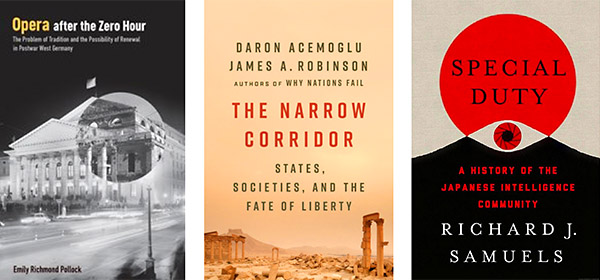
THE IMPACT OF INCARCERATION ON VOTING
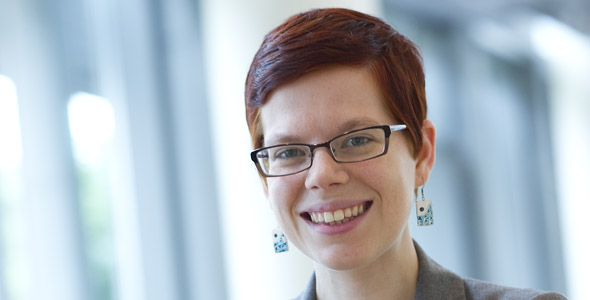
Ariel White; photo by Stuart Darsch
POLITICAL SCIENCE
3 Questions: Ariel White on the impact of incarceration on voting
"My work suggests that we should also worry about jail’s political consequences, even in the case of short jail terms. The legal system disproportionately pushes black voters out of the electorate, and the problem goes far beyond felon disenfranchisement."
Interview by SHASS Communications | Commentary in The Washington Post
PROFILES
THE HASTS PROGRAM
Meet Marc Aidinoff, PhD Candidate
"What does it mean when civil rights become about access to computers and the Internet? When lack of Internet access is considered a form of poverty? I wanted to know how social and economic policy were tied to changing ideas about technology.”
Profile by SHASS Communications
GLOBAL LANGUAGES
Learning about China by learning its language | Max Allen
MIT senior's longstanding passion for Mandarin leads to a hands-on taste of the complexities of functioning in a Chinese business context.
Profile by Global Languages
SCIENCE, TECHNOLOGY, AND SOCIETY
David Mindell's interdisciplinary approach to accelerating human-machine collaboration
Mindell's startup, Humatics, Inc. brings millimeter-scale location tracking to factories, ports, and other industrial environments.
Story by Zach Winn
POLITICAL SCIENCE
Looking under the surface of politics | Danny Hidalgo
Hidalgo studies the nexus of elections, campaigns, and money in Latin America, and particularly in Brazil, hammering away at the question of who, exactly, benefits from the system.
Story by Peter Dizikes
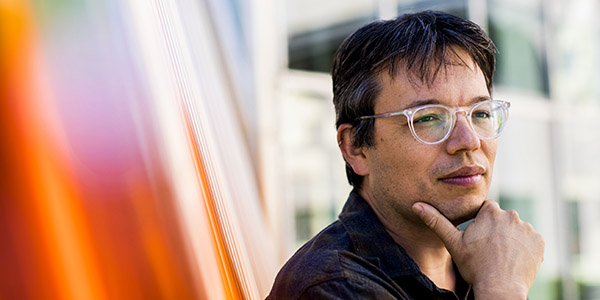
Danny Hidalgo; photo by Adam Glanzman
STAY IN TOUCH
Follow us
![]()
![]()
Subscribe to Said and Done
10 issues a year
In the Media
Recent coverage
Research Impact
Explore
Ethics, Computing, and AI: Perspectives from MIT
Browse the Series
Computing and AI: Humanistic Perspectives from MIT
Browse the Series
MIT Climate website | SHASS research
A major source of research, innovation, and discussion
Join us!
SHASS on MIT News
Research and Features
MIT Campaign for a Better World
Story| Join Us
Videos
Watch

Published by SHASS Communications
Office of the Dean, MIT School of Humanities, Arts, and Social Sciences
Editor and Designer: Emily Hiestand
Publication Associate: Alison Lanier
Published 15 October 2019